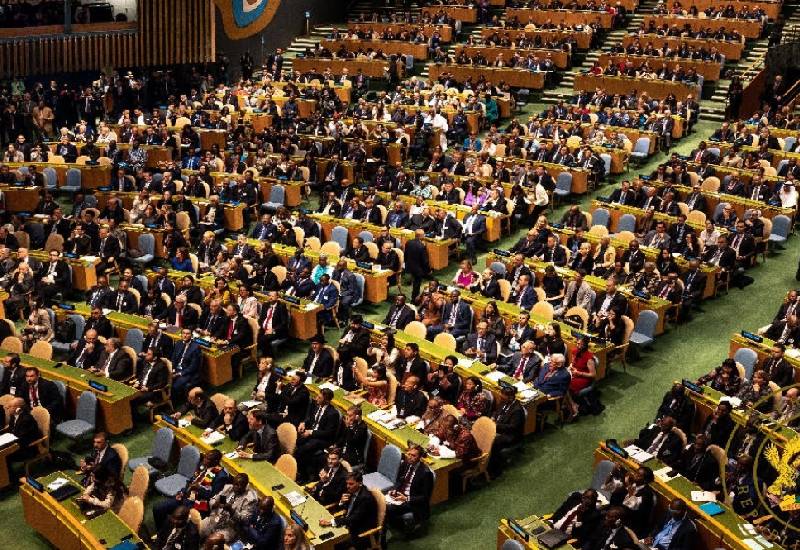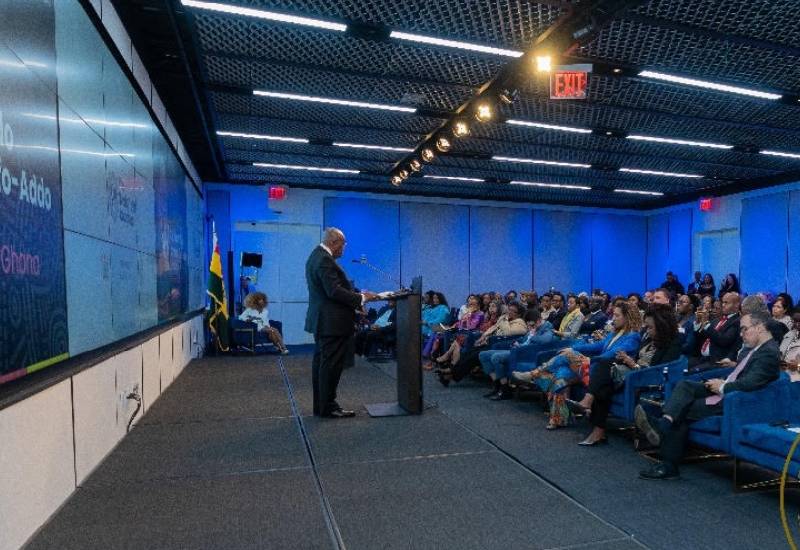By Godwin Owusu Frimpong
President Nana Addo Dankwa Akufo-Addo proudly declared at the 79th United Nations General Assembly that the upcoming 2024 elections in Ghana would be free, fair, and transparent. One can’t help but pause and ask: Is he truly in touch with the reality on the ground, or has he been transported to a distant utopia where his promises hold water amidst the turmoil currently gripping Ghana?
Given the record of his administration, which is plagued by corruption, unemployment, high inflation, widespread illegal mining, and ongoing pollution of rivers, can President Akufo-Addo truly claim that Ghana is a model of democracy while innocent young protesters are held in police custody and the struggles of thousands of unemployed youth, affected by his government’s inability to address illegal mining, are ignored? While his statement about Ghanaians’ strong commitment to democracy is praiseworthy, doesn’t he remember the numerous arrests of individuals simply exercising their right to protest against the environmental damage caused by illegal mining?
Standing before a global audience, the President’s confidence suggests a disconnect from the aspirations of everyday Ghanaians, whose lives have been compromised by the very practices he vowed to eradicate. Under his leadership, serious health issues have emerged, with newborns reportedly facing deformities linked to the toxic runoff from polluted water sources. So, one must wonder: Does President Akufo-Addo believe that he can simply disregard these pressing issues while assuring a world that Ghana’s electoral process remains untainted?
As he championed the integrity of Ghana’s democratic institutions, one is left to ponder whether his praise is an echo chamber—an optimistic narrative detached from the struggles faced by citizens who are all too aware of the challenges that have beset their country. How can he promise a smooth electoral process when discontent and unrest linger on the periphery?
While the international community looks on with admiration at Ghana’s history of peaceful transitions of power, how can we reconcile this legacy with the urgent socio-economic crises that persist during his presidency? Has the President, while basking in global recognition, forgotten that mere rhetoric lacks substance when juxtaposed against the hardships faced by his people?
In the wake of his pronouncement, critics cannot help but wonder: Is the pledge for transparency and fairness in the upcoming elections merely a strategic maneuver to maintain Ghana’s favorable international image? As his administration nears its end, will the echoes of these bold claims resonate with the Ghanaian populace who seek accountability, or will they simply fade away like the promises he made to tackle illegal mining?
With all these pressing issues at hand, the real question remains: Can President Akufo-Addo’s outlook on Ghana’s democratic future withstand the scrutiny of his government’s inaction on the critical challenges that affect the lives of its citizens? Only time will tell if his bold statements can translate into tangible change or if they are merely another chapter in an unrealized narrative.
Godwin Owusu Frimpong






